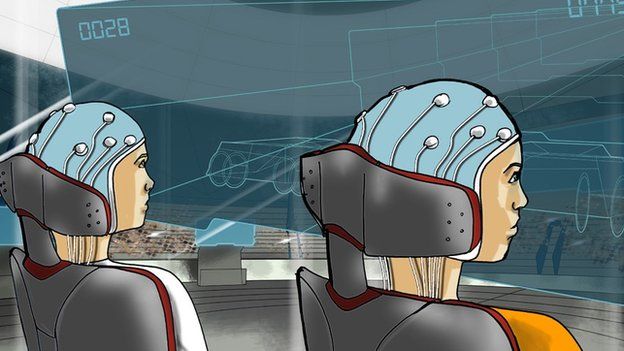Bionic Olympics to be hosted in 2016
- Published

The first Cybathlon, an Olympics for bionic athletes, will take place in Switzerland in October 2016.
The event will include a race where competitors control an avatar via a brain interface.
There will also be races for competitors wearing prosthetic limbs and exo-skeletons.
Hosted by the Swiss National Competence Center of Research, it is hoped the competition will spur interest in human performance-enhancing technology.
The brain-computer interface race is designed for competitors who are paralysed from the neck down. They will control an avatar in a computer racing game via a headset that connects the brain to a computer.
There will also be races for those wearing arm or leg prosthetics, an exoskeleton race and a wheelchair race.
The assistive devices worn by the athletes, who will be known as pilots, can either be ones that are already commercially available or prototypes from research labs.
There will be two medals for each competition, one for the pilot and one for company that developed the device.
Bionic limbs and exoskeletons are becoming much more technically advanced, offering those wearing them much more realistic movements.
Prof Hugh Herr, from the Massachusetts Institute of Technology, showed off some of the prosthetics that his team have been working on at the Ted (Technology, Entertainment and Design) conference in Vancouver last week.
He is currently in negotiations with health care professionals to get the bionic limbs more widely available to those who need them.
Often though there was a disconnect between technology and patients, said Prof Robert Riener, event organiser, from the University of Switzerland.
"The idea is that we want to push development of assistive technologies towards devices that patients can really use in everyday life," he told the BBC.
"Some of the current technologies look very fancy but are a long way from being practical and user-friendly," he added.
The other main aim of the games is to allow people to compete who have never had the opportunity before.
"We allow technology that has previously been excluded from the Paralympics. By making it a public event we want to get rid of the borders between patients, society and the technology community," Prof Riener said.
- Published20 March 2014
- Published27 January 2014
- Published27 March 2014